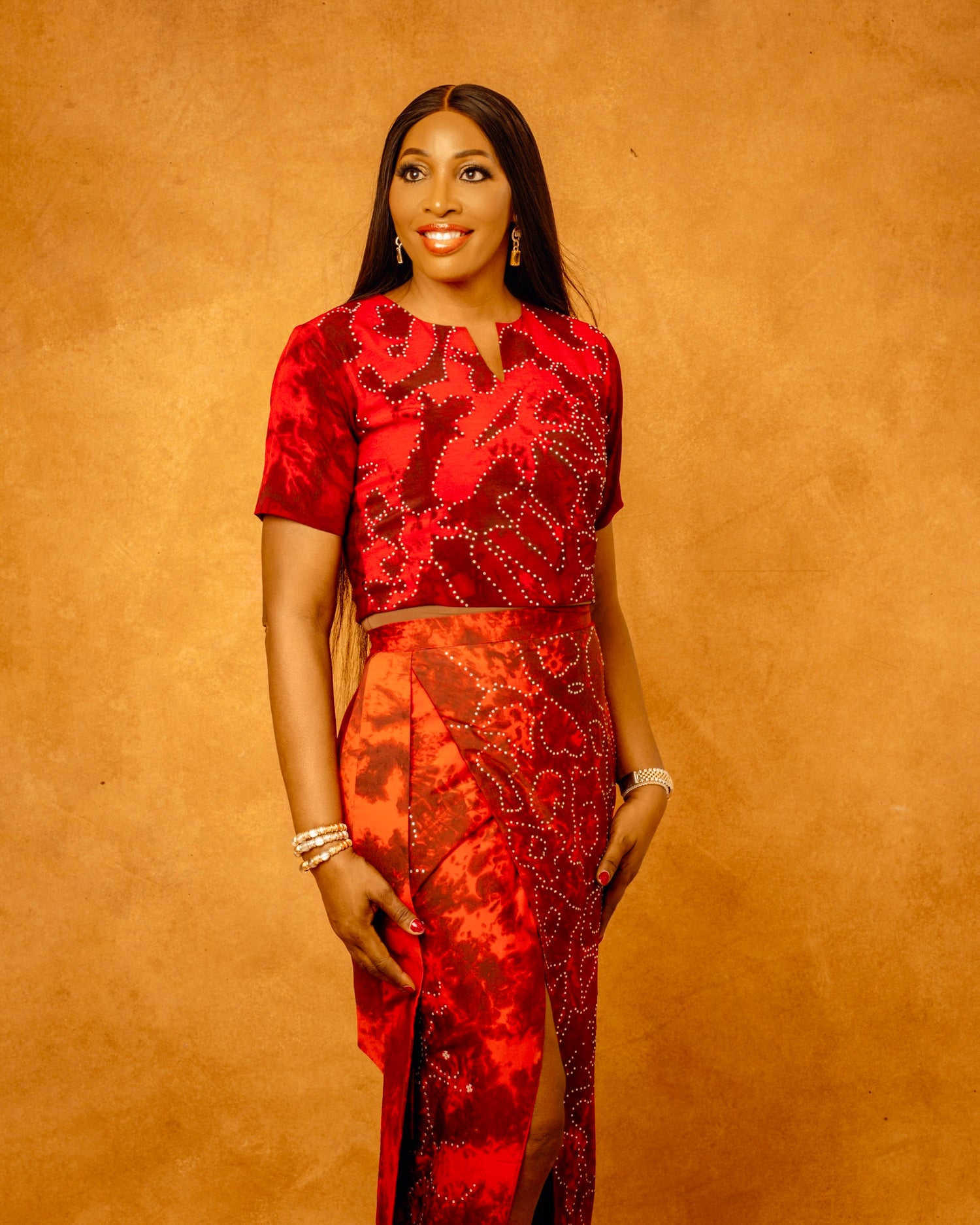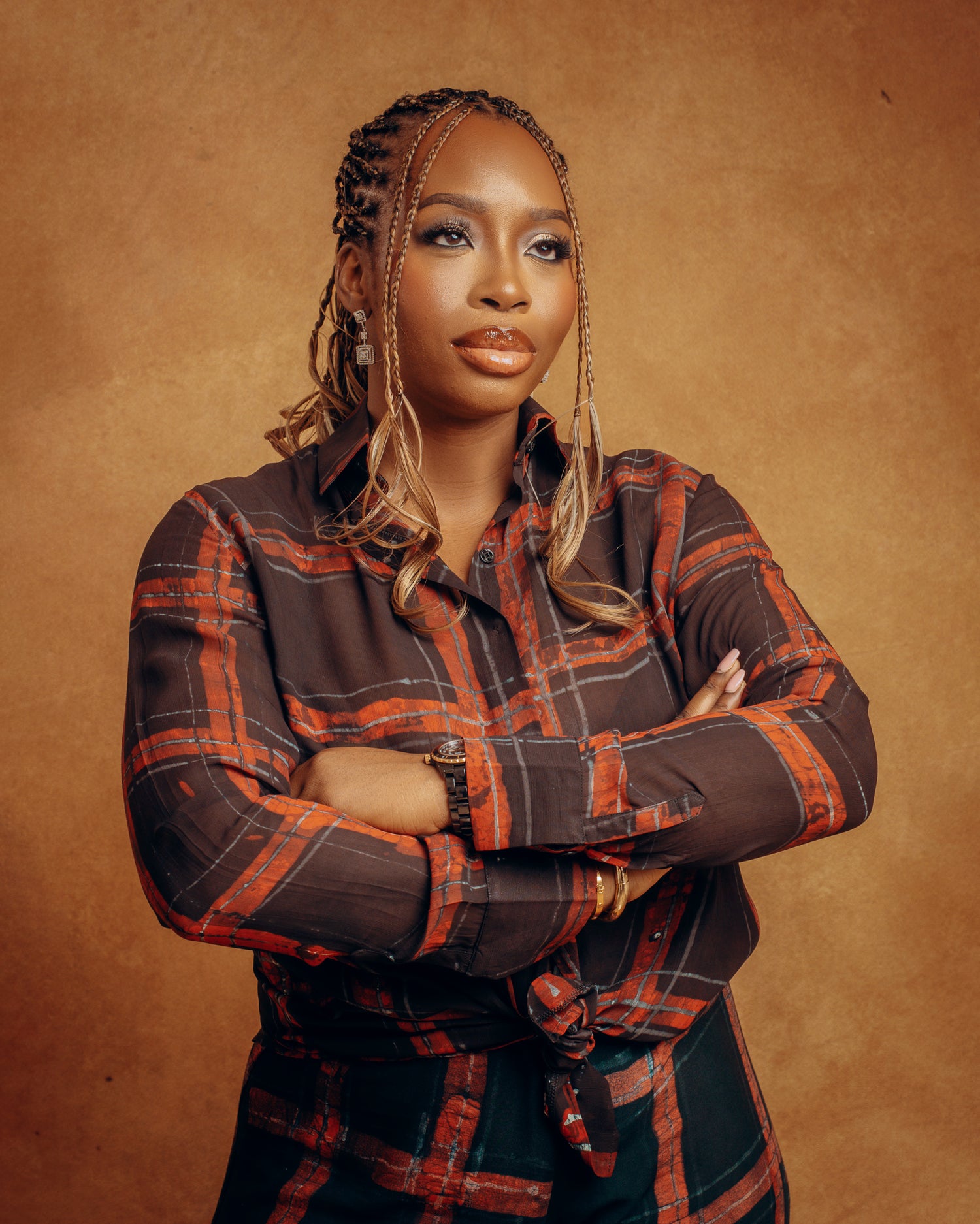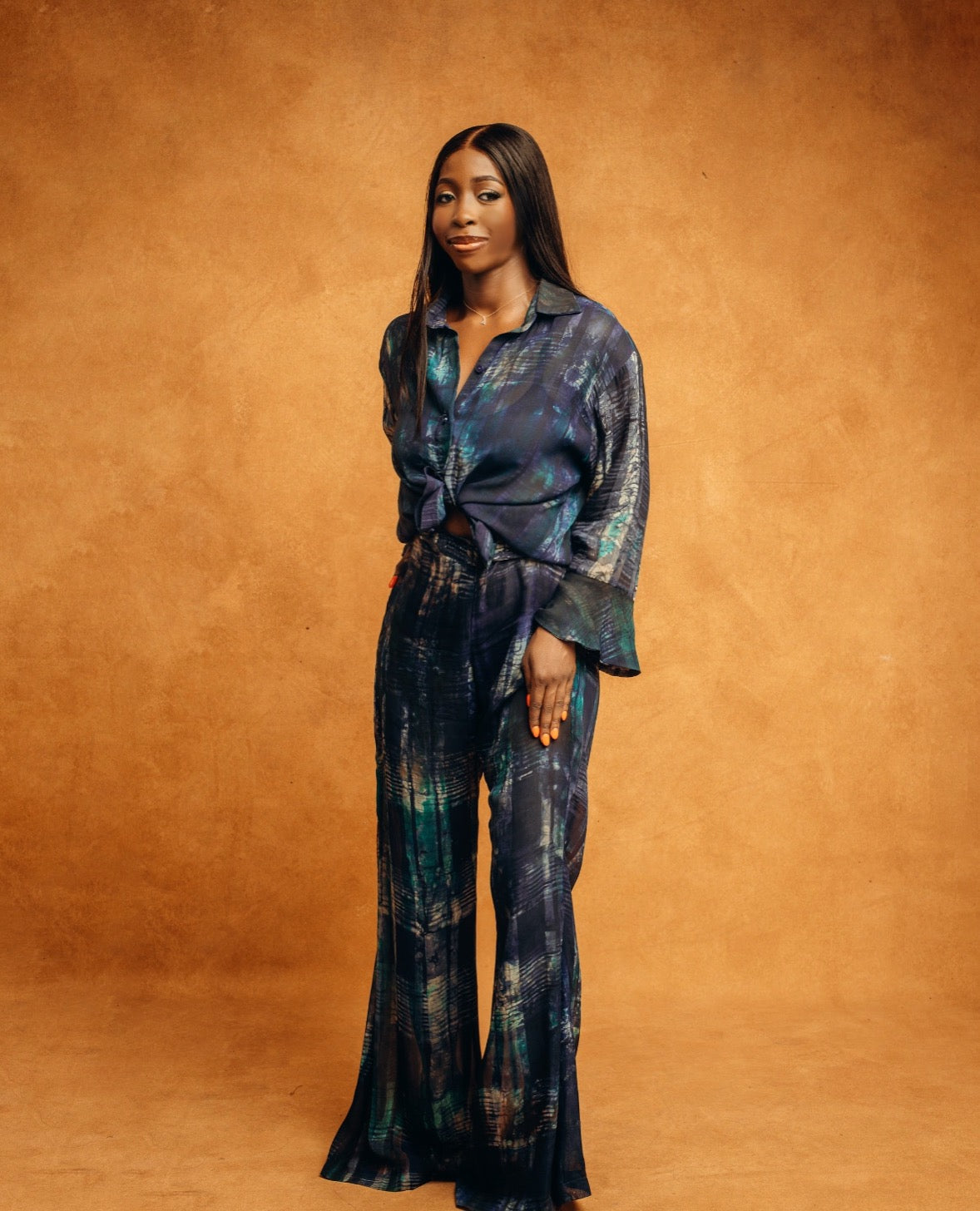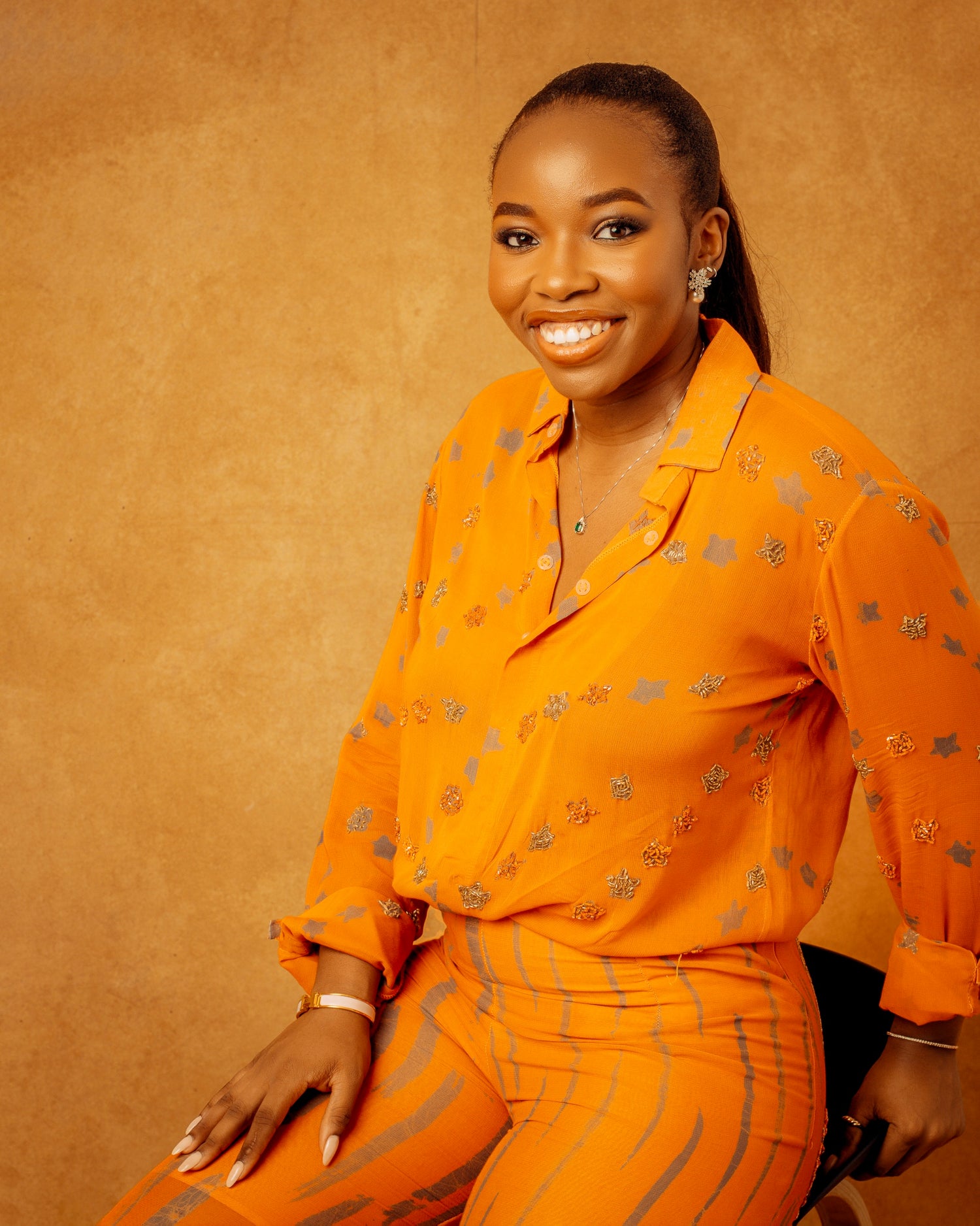Our Values
-
Local Manufacturing
We take pride in our in-house production, where every garment is thoughtfully crafted with integrity and care by our skilled artisans. By supporting local talent, we ensure that our manufacturing process not only upholds quality but also creates a positive social impact.
-
Sustainability
Sustainability is integral to our process. Our development, production, and distribution are managed in-house, with most sourcing and production based in Lagos, Nigeria. By utilising local resources, we support talented artisans and foster environmentally conscious practices.
-
Heritage
We’re committed to ethical business practices and celebrating our Yoruba culture. We’ve started creating exclusive adire fabrics, a traditional dyeing technique with intricate designs and vibrant textures. Our goal is to continue crafting unique fabrics that that honour our Yoruba heritage.

Creative Director
Abby Ikomi
Abby proves it’s never too late to follow your dreams. Drawn to fashion from a young age, she seemed destined for the runway at 5’11”, but strict parents had other plans. Decades later, with four kids and an LLB from the University of London, Abby teamed up with her daughters—Anire, Ama, and Dola—to launch Irawo Studio, turning her passion into reality.

COO/CMO
Dola Ikomi
Dola, Head of Operations & Marketing at Irawo Studio, brings extensive experience in digital marketing and holds a BSc in Business and Marketing from Northeastern University. She leads the planning, development, and execution of all marketing and advertising strategies while also managing the company’s day-to-day operations.

CFO
Ama Ikomi
Ama, Chief Financial Advisor at Irawo Studio, is a trained accountant with BSc and MSc degrees in Accounting from NYU Stern. She manages financial planning, record-keeping, and provides detailed financial reporting to senior management.

Chief Brand Officer
Anire Ikomi
Anire, Chief Brand Officer at Irawo Studio, holds a BBA in Strategic Design and Management from Parsons School of Design. She collaborates closely with Dola to strengthen Irawo Studio’s brand identity and public image.
